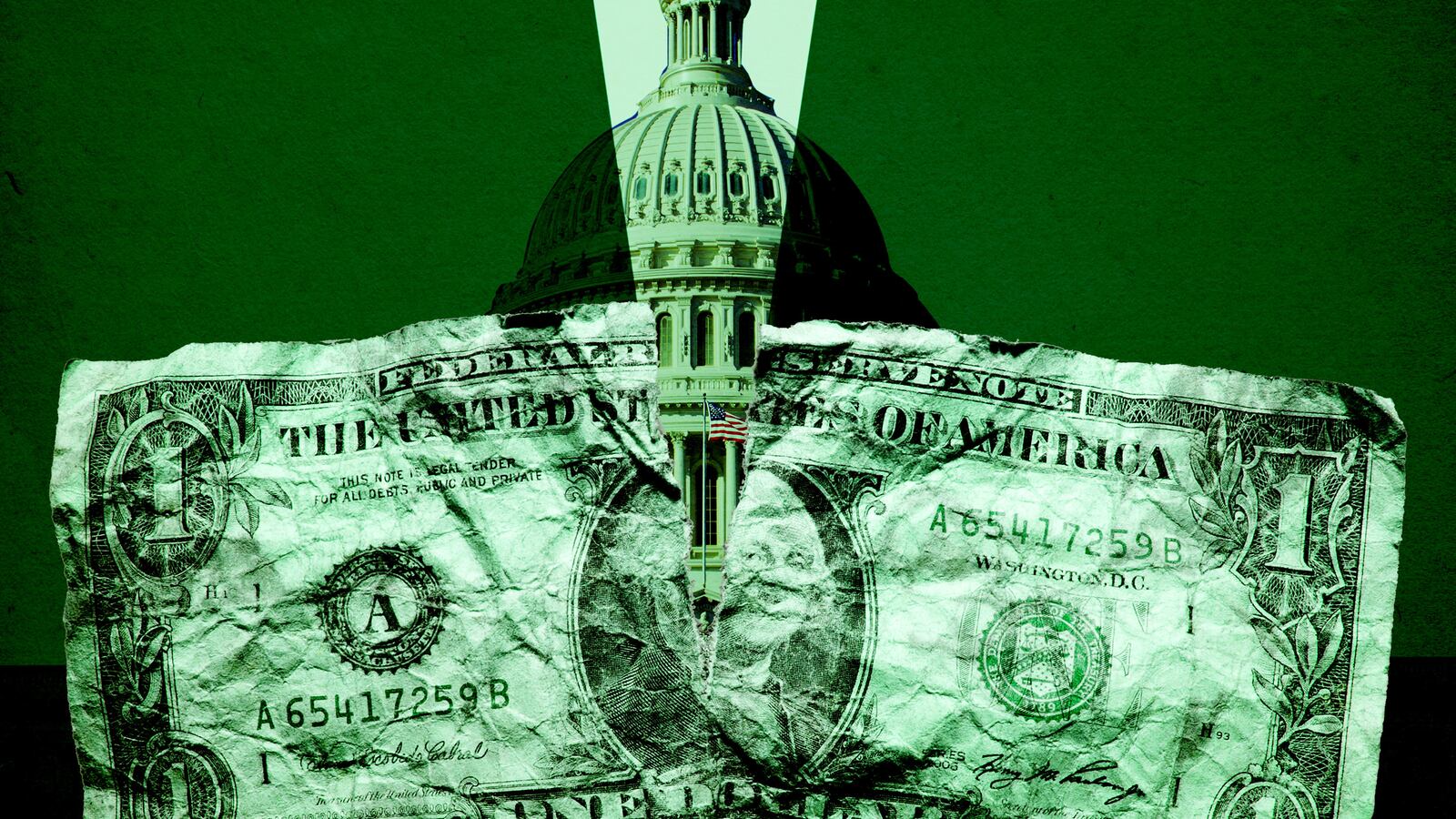The Congressional Budget Office (CBO) has projected that the annual budget deficit will soar from $779 billion to $1.37 trillion over the next decade. And even that assumes that Congress will allow the expiration of both the 2017 tax cuts and the 2018 bipartisan deal increasing discretionary spending.
If those and other expiring policies are renewed—which history suggests will happen—the budget deficit would reach a staggering $2.19 trillion a decade from now (this figure also removes the fake savings from shifting payments across years).
Why should we care? Democrats seem to think we can tax our way out of any deficit hole, and Republicans often advocate deficit reduction while in reality adding red ink. Yet on the current course, interest payments could cost taxpayers $1 trillion within a decade—or nearly double that if interest rates merely return to 1990s levels.
What is driving this deficit surge? We can first examine the $250 billion annual cost of the 2017 tax cuts, and the $150 billion annual cost of the higher discretionary spending caps enacted a year ago (all categories include the resulting net interest costs). Their combined $400 billion cost certainly drove much of the 2018 and 2019 deficit increase, and essentially puts a floor on future budget deficits.
However, even if renewed, the combined annual cost of these policies would merely grow from $400 billion to approximately $600 billion over the decade. That $200 billion increase cannot explain why the budget deficit will jump an additional $1.4 trillion over the next decade.
Instead, we must look to soaring Social Security and Medicare shortfalls. As background, payroll taxes and premiums do not cover the full cost of benefits. Therefore, Social Security and Medicare require a general revenue transfer each year to cover their shortfall.
Specifically, Medicare payroll taxes cover only hospital insurance, and Medicare’s monthly premiums cover just over one-quarter of the costs of physician and drug insurance. General tax revenues pay the rest.
Despite popular claims otherwise, Social Security is allowed to run annual deficits to balance out earlier surpluses. Its $3 trillion in program surpluses between 1984 and 2009 were transferred to the Treasury and thus reduced the overall budget deficits.
Therefore, the system is legally entitled to redeem its bonds and run $3 trillion in deficits through 2034. However, the $3 trillion that Treasury borrows to repay the Social Security system will count in the CBO budget deficit just like any other federal borrowing.
These Social Security and Medicare transfers would not be a major issue if they were a steady annual cost like most other federal programs. Instead, their escalating cost will overwhelm the rest of the federal budget.
Between 2018 and 2029, CBO projects that the annual general revenue transfers required to ensure full Social Security and Medicare benefits will rise from $396 billion to $1.681 trillion (including interest). That $1.3 trillion in additional costs explains nearly the entire rise in the budget deficit over that period. Most other spending is projected to remain relatively flat, as is the cost of the tax cuts.
In total, between 2019 and 2029, Social Security and Medicare will require a general revenue transfer of $11 trillion (including resulting interest costs), which dwarfs $3 trillion in tax cuts and $2.4 trillion in higher discretionary spending levels negotiated last year.
The long-term figures are even more dire. Last summer, the CBO projected an $84 trillion combined deficit between 2018 and 2048. CBO data estimated that the Social Security and Medicare systems would face a $100 trillion shortfall, while the rest of the budget would run a $16 trillion surplus. By the end of this period, the Social Security and Medicare systems (including interest costs) are projected to be running deficits of 12.6 percent of GDP per year. That is the current equivalent of a $2.6 trillion shortfall that must be made up elsewhere in the budget.
These CBO-based figures are non-partisan, and non-ideological. One can support full funding of Social Security and Medicare—and repeal of the 2017 tax cuts—while acknowledging the mathematical reality that swelling Social Security and Medicare shortfalls are indeed the overwhelming driver of our projected deficits.
These figures also emphasize the fantasyland economics driving the far left’s promises. Medicare-For-All, jobs guarantees, free college, student loan forgiveness, and other pledges would cost $42.5 trillion over the decade, and $218 trillion over 30 years, according to the left’s own sources. (And no, Medicare-For-All is not merely a “free” transfer from premiums to taxes).
Yet repealing the 2017 tax cuts and cutting defense spending to European levels would offset just $4.5 trillion. Even Senator Warren’s proposed wealth tax ($2.7 trillion) and Rep. Ocasio-Cortez’s 70 percent tax bracket ($300 billion) bring the total to $7.5 trillion under the most optimistic scoring.
In reality, the CBO tells us that raising the remaining $35 trillion would require either raising the payroll tax to 54 percent, or imposing a 90 percent national sales tax. But the presidential candidates won’t tell you that. It is easier to cling to the “just tax the rich and cut defense” fantasy that is no less delusional than the right’s “all tax cuts pay for themselves” fantasy.
How about some common sense: Don’t add $42 trillion in new spending until we’ve figured out how to close the existing $16 trillion deficit over the decade. Don’t radically expand Social Security and Medicare until we have gotten a handle on their shortfalls that will exceed $1.6 trillion within a decade. And those who are offended that Republicans did not pay for $3 trillion in tax cuts should fight to repeal the law—not pour $42 trillion in new gas on the fire.
Brian Riedl is a senior fellow at the Manhattan Institute. Follow him on twitter @Brian_Riedl.







